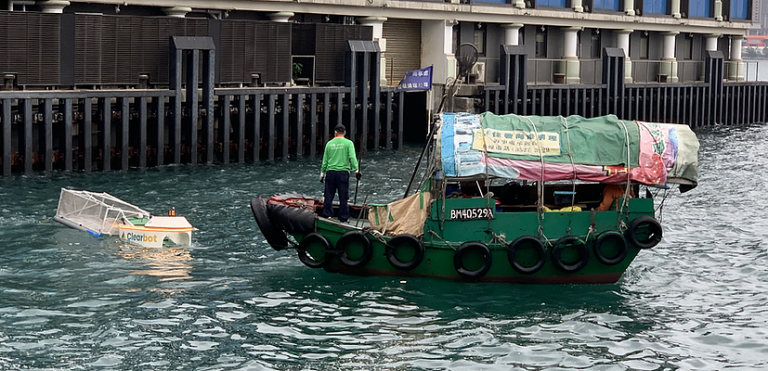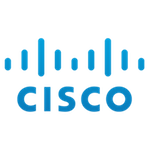Clearbot: Meet the Team Building Robots That Remove Trash From Our Waterways

Now that the Cisco Global Problem Solver Challenge 2021 winners have been officially announced, we are excited for you to learn more about each winning team and the story behind each innovation. The Cisco Global Problem Solver Challenge is an annual competition that awards cash prizes to early-stage tech entrepreneurs solving the world’s toughest problems. Now in its fifth year, the competition awarded its largest prize pool ever, $1 million USD, to 20 winning teams from around the world.
Clearbot is the winner of the Cisco Employees’ Choice $10,000 USD prize. I recently spoke to its co-founders, Sidhant Gupta, Chief Operating Officer, and Utkarsh Goel, Chief Technology Officer. Clearbot’s autonomous robots run on advanced visual AI technology to identify, gather and remove man-made debris from oceans, seas and waterways. The sustainable mini-boats are a more affordable, effective and sustainable alternative to existing methods of trash retrieval, such as hand and fishing net retrieval methods. In addition, they send back actionable environmental data about waste collected.
What problem is your technology solution trying to solve?
Sidhant: Globally, we have a marine garbage crisis. We’re based in Hong Kong, and we’ve observed rivers flowing throughout the city filled with a wide range of trash, which of course ends up in the sea. More than 60 percent is plastic, a known environmental pollutant that can enter the food chain. Today, in most of Asia, good tools to clean up marine waste at scale basically don’t exist. The majority of cleanup is still done by hand or using fishing nets from boats, often powered by fossil fuels.
Can you explain how your solution works?
Sidhant: The Clearbot system is two-fold: First, an onboard camera and AI algorithm detect debris so the robot can find it. Then a self-driving mini-boat in the water grabs onto and holds waste, and brings it ashore. Our solution creates an ecosystem that retrieves up to a ton of waste per day. The algorithm also generates data about the 64 distinct categories of materials collected, then transmits it to a database. On land, we sort the collection and send out salvageable materials to recyclers.
What inspired you to develop this solution?
Sidhant: The university Utkarsh and I attended sponsored us for a student trip to Bali, provided we solve a local problem at our destination. In Bali we saw a huge amount of waste, mostly plastic, on the beaches and in the water. Businesses that cater to the tourist trade, such as hotels and surf shop owners, struggled to remove it, sending people out every morning onto beaches and into boats to collect trash by hand or nets. While there is clearly incentive to keep the resorts clean, the task is challenging because they lack the proper tools.
We have engineering backgrounds, so we were confident we could solve that problem. We built our first prototype during that trip, using trash we collected for parts. But even Hong Kong, a prosperous city, employs the same slow and ineffective manual collection systems as many other places in Asia, where trash flow is greater than removal capacity, threatening vulnerable communities and ocean ecosystems. Clearbot removes twice the amount of refuse over a wider range, and is more financially sustainable.
How will winning a prize in the Cisco Global Problem Solver Challenge help you advance your business?
Sidhant: Clearbot’s a startup, so finances are tight. The prize money comes at a great time. Our business is growing, and we have projects already established in Hong Kong. But even with our engineering backgrounds and know-how in AI and robotics, making something beyond a prototype requires hard work and financial support. These resources will help in our research and development.
Do you know what you will use the prize money for specifically?
Sidhant: We’ll invest the money into further development of our AI and autopilot system, to improve our machine’s trash removal efficiency.
How has the global pandemic impacted your work?
Utkarsh: We work with partners internationally. It’s been difficult to expand our operations because in order to grow, we need to travel. Over the past year and a half, we’ve cancelled many pilot projects in other countries, such as Indonesia, because we’re still waiting for flights to open up.
Sidhant: As a hardware company, not being able to meet with our partners has been the major challenge. Meanwhile, COVID has increased the waste issue significantly. In Hong Kong you see many blue masks floating around the waterways. Controlling the additional trash has reduced human resources that normally go into green waste management, exacerbating the problem. However, it’s also an interesting time; even as it creates barriers, it also increases awareness for the need for our product.
Why did you decide to start your own social enterprise versus going to work for a company?
Sidhant: Utkarsh and I have always wanted to do our own thing, so the decision was easy. Before coming to Hong Kong to study, we lived in India. We watched our parents run their own businesses, and this encouraged us to take some risks and start our own enterprise. And of course, we were motivated to solve the trash problem.
Utkarsh: We’re a little more than obsessed with doing fast-paced, innovative work than working for a company with a slower environment. Both Sidhant and I love working for ourselves and focusing on innovation every day. My friends call me a work junkie!
What advice do you have for other social entrepreneurs?
Sidhant: Partnerships are the key. Right now, with such big opportunities in environmental, social and governance (ESG) and corporate social responsibility (CSR) programs, it’s easier for you to partner with a larger company. There are hundreds of programs just like the Cisco Global Problem Solver Challenge, with corporations willing to provide you support, a network — even money — to work on solutions for socially relevant problems.

